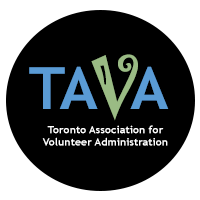TAVA Member Spotlight

Name: Lori O'Neill
Organization: Distress Centres of Toronto
Role: Volunteer Coordinator
Working in the Volunteer Engagement Sector for: 12 years
Been a part of TAVA for: 4 years, going on 5!
"Be open to change. Question those new ideas, procedures, policies, etc., but don't resist them just because they're new. As I learned in a TAVA workshop, most change is uncomfortable at first, yet so much can be gained by giving yourself time to adjust."
As someone working in Volunteer Engagement, how does TAVA help you?
In the past year, what was your most memorable professional project and why?
Would you please explain the professional success you're most proud of and how you implemented it?
In your opinion, what is the biggest challenge to working in Volunteer Engagement?
I wonder if there's valid research on this question...I was tempted to look it up (!), but since the question is about my opinion, I'll share my biggest challenge. Most of my volunteers have very busy lives, and while it's understandable job, school, and family responsibilities take priority over volunteer work, their schedules allow little flexibility. In general, everyone from students in their 20's to grandparents in their 60's lead busier and more complex lives than a generation or two ago. In my 24/7 work agency, it'd be wonderful to have volunteers with more flexible schedules!
What advice would you give to someone looking to take the next step in their Volunteer Engagement career?
Here are a few things that I consider especially important to success and satisfaction in this field:
1. Join an organization like TAVA to learn, share your knowledge and skills with others, and feel supported.
2. Share key learnings with colleagues at your organization to aid in their professional development and increase the likelihood that what you've learned will positively impact your workplace, rather than be overlooked or forgotten.
3. Be open to change. Question those new ideas, procedures, policies, etc., but don't resist them just because they're new. As I learned in a TAVA workshop, most change is uncomfortable at first, yet so much can be gained by giving yourself time to adjust, as well as by tweaking things during this time (as opposed to taking an all-or-nothing approach regarding the old vs. the new way).
4. Encourage daily self-care among your volunteers and colleagues. Watch for signs of burnout and compassion fatigue among them. Do the same for yourself so that you're better positioned to thrive and love this wonderful work!
When you're not working, how do you like to spend your time?
Volunteer work and attending charitable fundraising events! Time with family and friends is vital to me, so when I can combine that with volunteer work or attending a fundraiser, I'm at my happiest!
